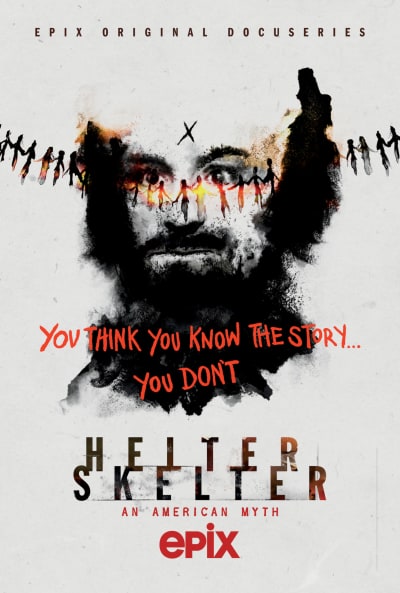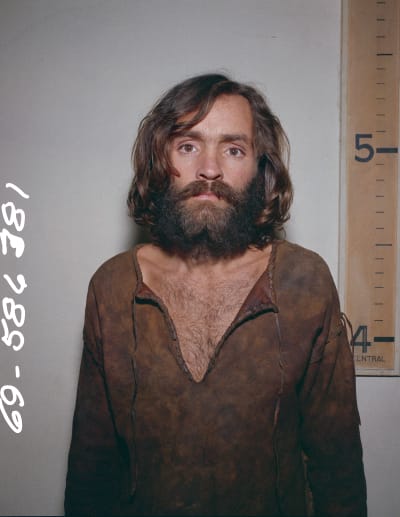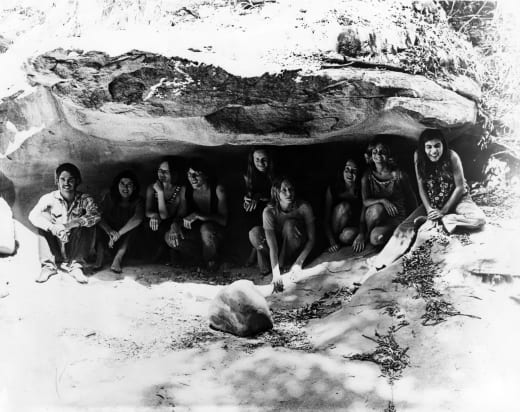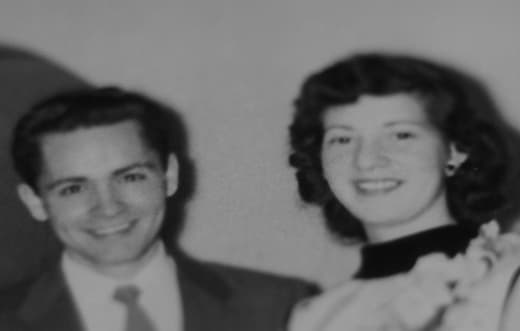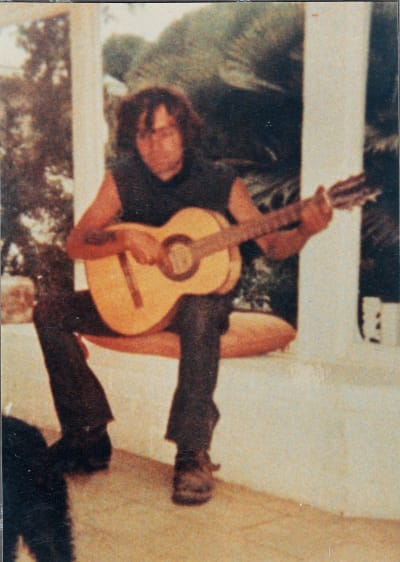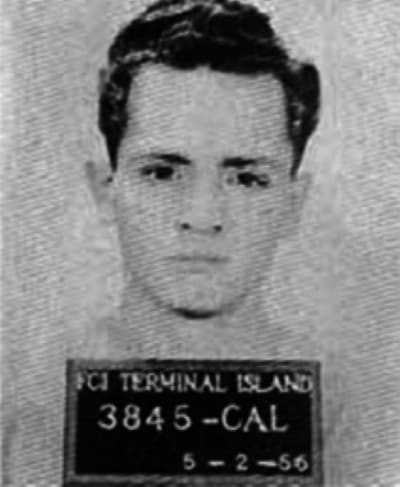The myth of Charles Manson and Helter Skelter struck a chord when he manipulated “the family” to murder innocent but well-known people to push his still rather confusing agenda to start a race war.
The family was Manson’s groupies.
They considered Manson a rockstar and a messiah, and their love for him drove them to unforgivable places. They fell for the erstwhile charms of a petty conman and cemented a place in history.
Helter Skelter: An American Myth will air on Epix beginning Sunday, July 26, and director Lesley Chilcott went to great lengths to dig into Manson’s history, hoping to show, with extensive research and first-person interviews, that Charles Manson has not been worth over 50 years of fascination.
Chilcott’s documentary series feels like the definitive exploration into Manson and his followers.
She doesn’t portray Manson in a favorable light, deserving of obsession but highlights how the times and Manson’s extensive criminal history created the perfect crescendo to capture the attention of misfits longing for love and the countless others seeking to crack his mystery.
It turns out that there wasn’t a mystery at all. How it happened takes shape with Chilcott’s help, and although we’ll never get answers about his motivations from the man himself, after Helter Skelter, we won’t need them. Charles Manson wasn’t worth the effort.
We had a chance to chat with Chilcott about the project, her process, and the story she hopes you’ll see when the series is finished.
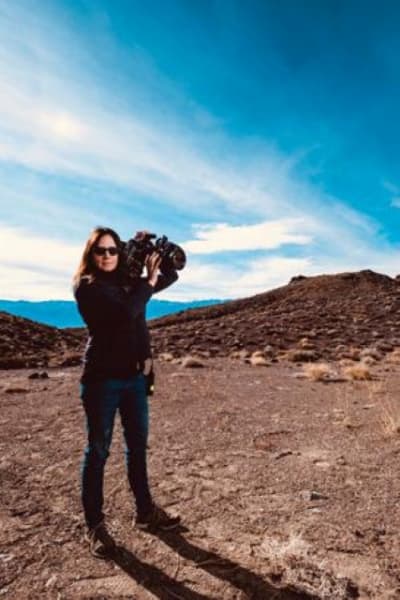
So, tell me, how did you get involved with this project?
I got involved because the owners of Rogue Atlas Productions, Elizabeth Davies and Eli Frankel, who were executive producers on this, initially called to ask me some consulting questions, how would you do this? How would you do that?
And I was just like, “Oh, another crazy Charles Manson story,” and hung up the phone. And then the next day, another call, more questions. And then, before I could turn around, I found myself directing six episodes.
And how much did you know about Charles Manson and his followers and the murders before you got involved in this?
Not all that much. I’m a Los Angeles native. So, of course, I knew the stories and grew up in his era, but I was not really part of Hollywood. I was born a little bit later, and I just knew the pop culture parts of the story. And I did not understand the cultural obsession with this.
And I thought, well, maybe this is a really good thing for me to do, to go in and do this anthropological dig and this deep dive and figure out why are we still talking about this petty con man?
The title suggests that there’s a lot for people to learn from the documentary. And I know I learned a lot. I really enjoyed it. And I’m wondering what’s most important to you that viewers take away from this experience?
Good question. If I had to point out a single thing, it would be that Charles Manson is not this mastermind, brilliant criminal that he’s been made out to be.
And that while the crimes that he committed and was a part of were absolutely some of the most unspeakable murder tragedies in Los Angeles and in history really. We give him way too much credit. They were awful murders. He was a small-time con artist with an acid rap that sold a lot of people.
He gets a lot of credit just because of the people that he chose to murder, don’t you think?
Yeah, I think that’s part of it. I think that had Sharon Tate and Abigail Folger and some of these other people not been so well known, he might not get as much credit, but I also think people talk about it endlessly because the crimes seem to have no motive and that’s really difficult to understand.
You’re supposed to have this open society where different social strata and different classes of people we’re all mixing together and everybody was hitchhiking, and it was supposed to be this amazing thing. And then you have this dark underbelly and these terrible crimes, excuse me, committed by a small group of people. The family wasn’t actually that large.
What was your process of gaining access to archival footage? And how did you determine what footage you wanted to include?
Ooh, that’s a good question. We had four editors working on the six episodes and there’s the more readily available archive footage that we’ve seen in other projects, and then there are people that had photos that had been in their houses that they never got out of that desk drawer or that basement or that attic.
So we went about it in a very systematic way. We tried to do this anthropology experiment and do this deep dig. And we borrowed original photos and tapes, transferred some new film, and really tried to say, “Hey, we’re not going to do the tabloid-esque coverage of this. We want to do a historical deep dive that places you in the time of the sixties.
Let’s talk about the social history of the late sixties. And the family just happened to be there at that time. Can you maybe open up and do a longer interview than you’ve done before or share some photos that we haven’t seen before.” And so that was our, we took a very systematic approach to it.
Was there anything that you ran across that you wished you could have used, but you didn’t have access to?
The evidence. Yes. Early on… That’s a great question. Because we thought… The evidence has been out a couple of times over the five decades, and it lives in different places. And I really would have liked to have access to the original evidence because I didn’t want it treated glamorously.
I wanted it to be raw and ugly. And we were able to find photos of a lot of it and license those photos and treat them in a way that didn’t glamorize it. But I really would have liked to see the original evidence.
And taking this approach, the non-glamorous approach, if you will, how did you recruit the interviewees? Did you have a specific group, especially the family members that you used. Did you have a specific group in mind when you started putting this all together, or did they fall into place?
I think some of the family members who are more obvious. For example, Dianne Lake, who’s written a book and was the youngest family member. Her parents were at a commune, and she was essentially booted out at 14 and found Charlie.
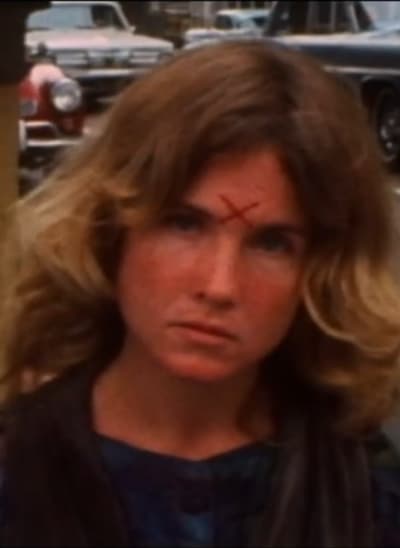
And Charlie was in his early thirties and you have someone who’s two decades younger than you essentially that you’re sleeping with and manipulating, and also playing the role of this father figure.
I think her story is very interesting. She’s done interviews before, but we sat over a period of days and did some audio interviews. And I really wanted to hear the full story.
She finally blurted out at 16, that she was only 16 after everyone had been arrested and that she didn’t belong there and she wanted help. And she got some therapy and went to an institution.
And I think her story is fascinating because we all want to say that would never happen to me. I would recognize the signs. I would never fall for a guy like that. I would never be in a cult.
And then you see her, and you’re like, she didn’t have a chance. But I also wanted to, like a lot of filmmakers, I wanted to talk to people that had never talked before.
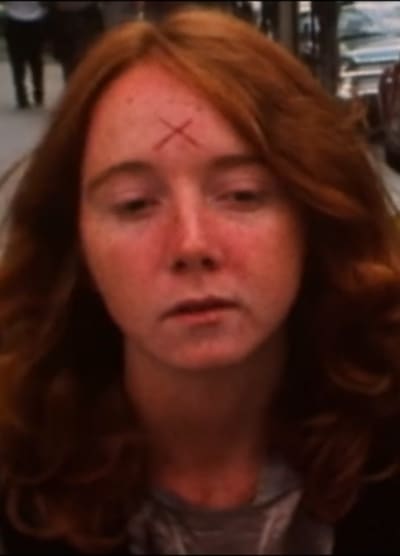
And so we found a family member and a couple of other family members that have never been on camera or done audiotapes before. And I think hearing their point of views is especially enlightening. Does that answer your question?
Yeah, absolutely. Was there anybody that you wish you had had access to interview but wasn’t down with the idea?
Well, yes. I think there’s some people, while I did interview Bobby Beausoleil from prison, there are some actual family members that are in the California prison system and it is extremely difficult to get interviews with them.
Not because they refuse, but because the system won’t allow it in California. So there would have been more people that I would have liked to interview for sure.
And I also did interview quite a few family members that aren’t in the series that talked to me off the record for background information and research and fact-checking and that sort of thing.
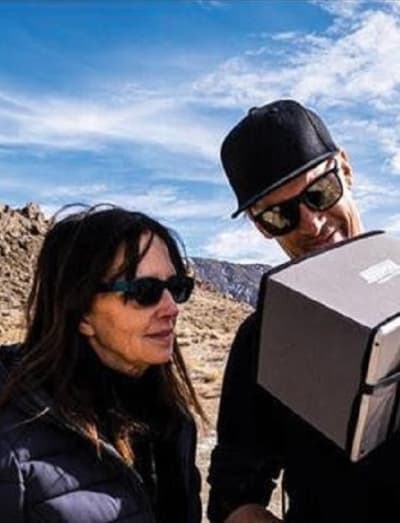
Do you think it’s difficult to get access to those people because so many other avenues have glamorized it, and they just don’t want to give these people their 10 minutes of fame anymore? What do you think the reasoning is behind just not granting them access, especially since Bobby Beausoleil was available?
Yeah, I think it’s… Well, we had to do all his interviews in a series of 15-minute increments, because you can only call 15 minutes at a time from prison. And I would record, with his permission, the phone calls.
In California, some people say it’s partly because of Charlie Manson and other people say that’s absolutely not true, but there are certain prisoners that have more fame than others. So in the 90’s, the California prison system changed the rules so that you can’t make an appointment to interview and film someone on camera. You can go there and shoot some program.
And if they happen to grant you an interview or something like that, but the state of California has made it very difficult because of these so-called or misnamed celebrity criminals that outside of the prison system, there’s been a lot of tabloid-esque coverage over the years.
And some people didn’t want to be interviewed for that reason. Some people don’t want to remember this part of the life, and some people are sensitive, and they don’t want to put the victims through it.
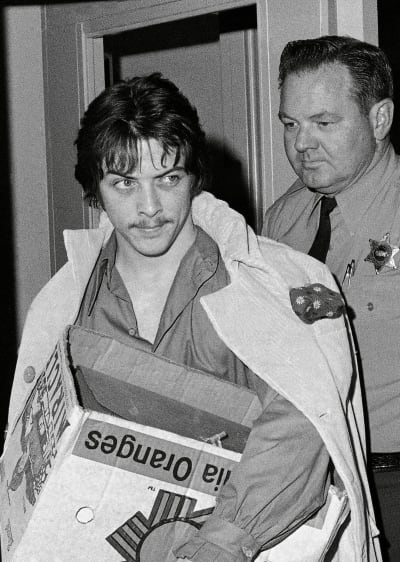
So if you could have asked anything of Charles Manson, what would it have been?
Good question. He died in 2017, so I didn’t get that opportunity.
Gosh, there’s probably about 50. Let me think on that for a second. Because when he was alive, he would talk to anyone that he could. A cell phone was smuggled into him. He would call people. He would use the prison system and call people if you sent him information and letters, and he did everything.
I think maybe he never really explained. He would talk in riddles, and he would never directly answer certain questions. And I would want to know as he was aging, was he ever tempted to try and set the record straight?
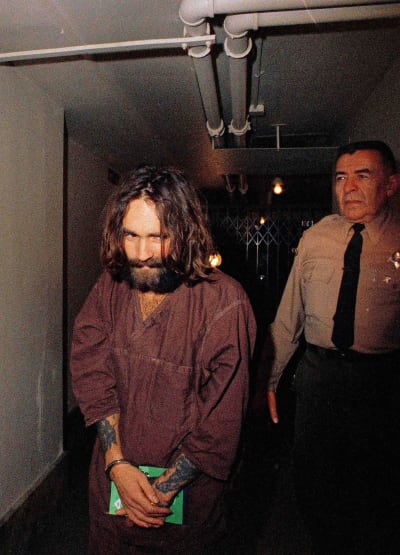
Yeah, I think that’s a lost opportunity.
Yeah. I think he would have had a riddle answer. I don’t think he was capable. He had built all this stuff in his mind. I don’t think he was capable of expressing certain truths in the end. But I would have wanted to know why he didn’t try.
What did you uncover during the process of creating this series that surprised you? Since you didn’t know that much, I bet a lot surprised you.
A lot surprised me and doing such a deep dive, there are definitely a few things. I think there’s a couple of things I would say. One, I didn’t know that he truly had a really trying, horrible childhood.
I had heard stories and he made up stories, and he made up stories that were so crazy. His mother traded him for a pitcher of beer that turned out to be untrue. You wonder, was he a con artist from birth, or did he really have a troubled childhood?
And some of the stories were true and were horrible, like being forced to wear a dress to school and those sorts of things. So that surprised me.
And then secondly, I was surprised that he was quite a skilled lyricist. He wasn’t the best musician in the world, but he did write some good songs.
And it helped me to understand while people might have been attracted to him at that time before everything went off the deep end.
Why they, maybe, were attracted to him in the beginning or found him appealing. So that was surprising.
Yeah, it’s surprising that The Beach Boys connection. He got so close to making something happen, but then everything that he is just ruined his own experience.
Yeah. He couldn’t get out of his own way. I mean, if he really wanted to be a rock star that badly, why didn’t… He had a half a dozen recording sessions, why didn’t he take better advantage of them? Maybe he was just incapable, or maybe that’s not what he really wanted.
And my last question for you is a heavy one. I was watching the screeners while we were in the midst of some of the more volatile protests of 2020.
When you first started this process, how did you intend the racial tensions that ran through Los Angeles during the ’60s and how Manson perceived them to relate to 2020? And how has that vision changed given what we’re currently experiencing?
Well, surprisingly, the vision didn’t change because I wanted to do this dig, as I was telling you, I guess what I’m calling this anthropological dig and to show the social history of Los Angeles — hitchhiking, hallucinogens, communes, music, clubs, protests, all of that.
And I think that on the one hand, Charlie gets way too much credit for orchestrating this family and having this pop culture influence that he deserves. So I don’t think he deserves that kind of credit.
But looking at all of the social unrest in the late ‘60s, there was an unpopular foreign war like now.
There were unpopular political leaders like now. Racism was this curse all across the nation like now. We had new technologies like now. We have disaffected youth that don’t like what some of their elders stand for. All of those symbols are there now.
So I thought it would be helpful to look at that, removing him from the picture. When you put him in, maybe having a cultural history of that time helps you understand how people could have been susceptible to his charms, his so-called charms.
And so I think that part of it’s important. But to put him up on this pedestal, I think the family members were his puppets. And I think the media to a certain extent has, and is his puppets as well. And I think it’s time to move on.
And I think it was an excuse for them to stop covering other things, to jump on board the Charles Manson train.
Yeah. I think that’s right, because how do you explain something when the puzzle pieces just don’t fit? There was no motive for these crimes. And our brains, there’s no box to tick. There’s no black or white, and I think that people find that troubling.
So we keep talking about it and giving him attention instead of just putting it away as this blip that happened and that this small-time con artist was able to perpetrate some of the most unspeakable murders in our history as a country.
But beyond that, take the lessons that we can learn from this and then talk about more important things.
Helter Skelter: An American Myth premieres on Epix on Sunday, July 26, at 10/9c.
Carissa Pavlica is the managing editor and a staff writer and critic for TV Fanatic. She’s a member of the Critic’s Choice Association, enjoys mentoring writers, cats, and passionately discussing the nuances of television and film. Follow her on Twitter and email her here at TV Fanatic.

